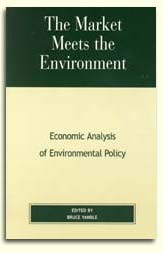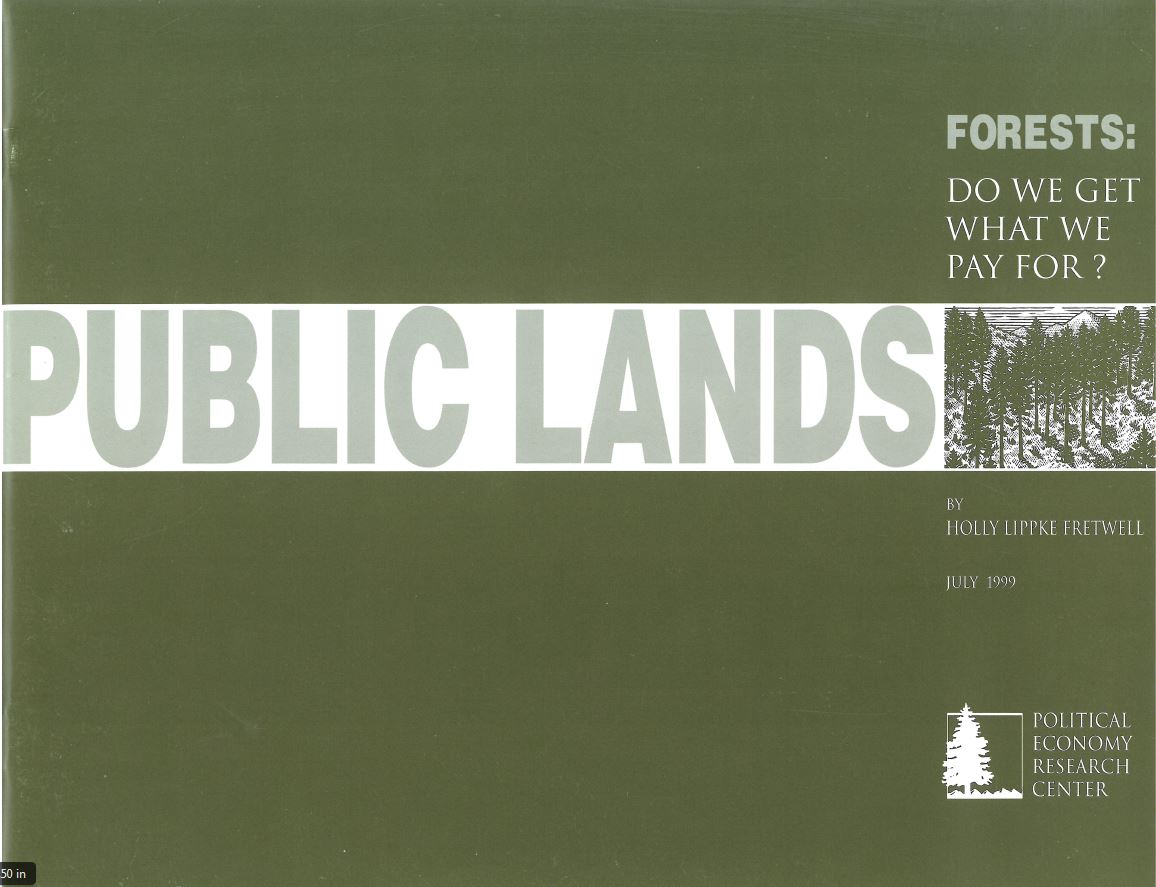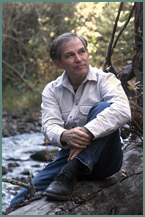Private wilderness playgrounds are the future for quality outdoor recreation. At least that is what William Altenberg, Jr., is betting on. In northern New Hampshire, he leases 24,000 acres of timberland from the International Paper Company and offers hiking, biking, kayaking, and backcountry skiing to paying customers. He is building lodges, yurts, and a 100-mileContinue reading “Wilderness By Reservation”
Author Archives: admin
Recipe For Sludge
Sift it, bake it, and put it on the garden. That is basically how contaminated soil or sludge is cleaned and returned to use. The baking process causes the contaminants to vaporize leaving the soil clean enough for a variety of human uses. Soil Restoration and Recycling (SR2) is a Chattanooga, Tenn., company that isContinue reading “Recipe For Sludge”
Market for SO2 emissions
By Daniel K. Benjamin The results of the SO2 tradable emissions program are in– and the economists were right. Economists have long argued that tradable emissions permits are, in principle, superior to the command-and-control approach in reducing pollution. Traditional regulators have disagreed. The results of a pioneer trading program are now in, and they suggestContinue reading “Market for SO2 emissions”
The Market Meets the Environment:
The Market Meets the Environment Economic Analysis of Environmental Policy Bruce Yandle Editor What does free market environmentalism have to say about Love Canal, Cleveland’s burning Cuyahoga River, golf course pollution, the EPA’s Toxic Release Inventory Requirement, nonpoint source pollution, and river basin associations? In this revealing book, Bruce Yandle has compiled eleven original essaysContinue reading “The Market Meets the Environment:”
Environmental Education
Across the country, children are learning that the earth is getting dangerously hot, that acid rain has destroyed vast numbers of lakes and rivers, and that organic food is safer than food grown with pesticides. Some children are frightened about their future; others pester their parents with simplistic solutions to complex problems. “Many environmental materialsContinue reading “Environmental Education”
Do We Get What We Pay For?
“The concern for forests today is not simply that trees will die from bugs or diseases–it is that entire forest systems are so far out of normal ecological range that virtually every element in the system is affected, and may be at risk.”
Enviro-Capitalists
Private solutions can and should be an important part of the effort to manage and conserve our natural resources. Citizens are frustrated with government policies that are costly, compromise private property rights, and still fail to preserve environmental quality. Where government bureaucracy has created roadblocks, individual entrepreneurs have generated innovative approaches to environmental problems.Continue reading “Enviro-Capitalists”
Enviro-Capitalists:
Christine Jurzykowski A love of animals could not keep red ink from spilling across the pages of Christine Jurzykowski’s account books at the Fossil Rim Wildlife Center. Jurzykowski and her partner Jim Jackson had purchased 2,700 acres of rolling Texas hill country with good intentions and hefty bank accounts and made it home to moreContinue reading “Enviro-Capitalists:”
Government Obstacle:
Thwarted By Regulation David Cameron is a third-generation Montana rancher. A lanky, middle-aged man with a genial manner, he raises cattle and sheep. Cameron is also a biologist, recently retired from Montana State University. He and his family have a long tradition of protecting wildlife. Elk, deer, mountain lions, and bears inhabit his ranch.Continue reading “Government Obstacle:”
Nurturing Entrepreneurs:
1. LET PEOPLE KNOW ABOUT THESE PIONEERS. Chances are, the readers of this issue of PERC Reports were unaware of most of the individuals mentioned here until now. Perhaps a few have visited Fossil Rim and some have read in PERC Reports about Orri Vigfœsson’s purchase of salmon fishing rights. But the environmental successes ofContinue reading “Nurturing Entrepreneurs:”







